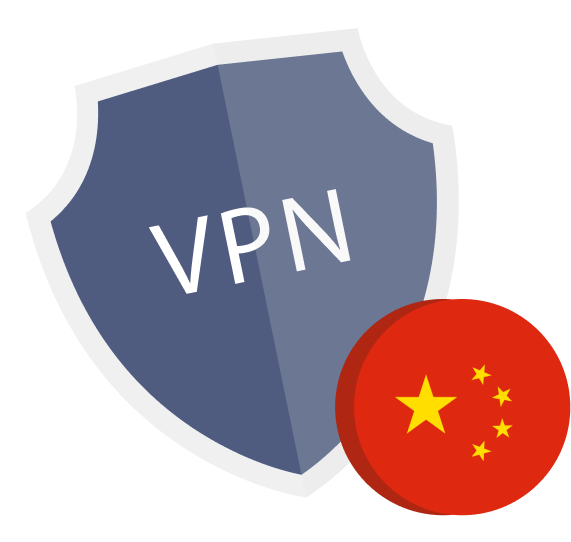With the implementation of the Great Firewall of China and its restrictions on internet access, people need help to surf through online services and other websites, making a VPN necessary. VPNs are simple to set up, and they draw a lot of attention from technical minds who intend to mask their original locations.
However, not all VPNs work in China, making it difficult to find the best one for you. In this guide, you’ll learn everything you need to know about using VPNs in China — including how to use them, their legal status, and how to choose the best one for your needs.
What is the Great Firewall of China?
Great Firewall of China is a multi-billion-dollar program that monitors cyber activities inside China. It encompasses websites whose content could be antagonizing towards the administration. As such, some Chinese nationals need an opportunity to use other foreign sites like YouTube, Google, and Facebook.
The government states that this firewall works to promote unity among Chinese citizens. How? By limiting access to data that can threaten societal norms and people who use it as terrorist tools, among others.
Why Do You Need a VPN in China?

The great firewall of China, in its official capacity, targets only to address cyber-terrorists. However, in actuality, the system blocks content using many techniques, such as
- Restricting access to foreign news sources and websites,
- Utilizing computer programs that identify prohibited terms and content on social media,
- Removing results from internet searches that the government believes to be harmful or unfriendly.
VPNs help overcome these restrictions in areas where internet usage is severely restricted. You need a VPN to post content on Instagram, WhatsApp, and Facebook at home. Reading the news on your favorite websites, such as the BBC, is essential. Additionally, a VPN is required to browse DeviantArt, Twitch, or Discord while staying at home.
Are VPNs in China Illegal?
In short, VPNs are severely restricted in China, but they are not illegal.
To discuss thoroughly, many VPN services are not allowed, and the government frequently threatens to ban VPNs completely. Those providers that work, China asks them to operate under the condition that they collaborate with the government, negating the whole point of using a VPN in the first place—privacy.
The Chinese government has removed almost every VPN app from the Chinese App Store. Why, then, does China not completely prohibit VPNs and VPN software? No, because doing business in China—especially international trade—requires VPNs.
It ensures that information sent from China worldwide is secure using VPNs. If all VPNs are not allowed in the country, it would hinder the capacity of international companies to engage in business operations in China.
When it comes to the rights of individuals versus businesses when using a VPN, there are still a lot of contradictions. It’s crucial to remember, though, that until now, no foreign VPN user has ever faced penalties for using a VPN while visiting China—unless they were using it to criticize the Chinese government or the state.
Does a VPN Work in China?
Some VPN providers operate in China, but they must follow the government’s regulations to have a VPN server there. There are problems with the VPN services, even if you succeed.
The Great Firewall is ever-changing. China employs tricky strategies and constantly comes up with new ways to restrict internet access for its people. Because of this, patterns regarding what works and what doesn’t with VPNs are unpredictable and challenging to identify or evaluate.
However, the main problem comes in distinguishing normal traffic from VPN use. Thus, the Chinese government and VPN providers are now in a never-ending conflict. It’s interesting to note that during China’s more important national holidays, such as the anniversaries of the Chinese Communist Party, there are extra problems with VPN connections.
Here’s one more interesting fact. The country prohibits free VPN services because its internet regulators can quickly identify them. Establishing a VPN on the mainland requires connection protocols and ‘obfuscated’ servers that are way more advanced than the freely available VPN encryptions can handle.
How Does Censorship Work?
The government restricts users’ access to specific websites and online platforms through various strategies. The easiest to understand is IP blocking. All Chinese ISPs block unwanted website IP addresses. They also employ a variety of DNS tampering techniques. These include DNS poisoning and purposeful DNS server configuration errors that result in users receiving bogus IP addresses.
The government also employs keyword filtering to monitor other online content, such as search engines, forums, and messaging apps. They filter users and websites that break the rules by looking for unwanted keywords in internet traffic. Despite being largely outsourced, there is still a large internet police force that permeates the net and removes objectionable content.
How Do You Choose the Best VPN for China?

You should sign up for a VPN before visiting China if you plan to do so. Additionally, you should avoid free VPN offers in favor of a very secure VPN. Thus, the following are some suggested characteristics to search for:
Vast Server Network
Look for a VPN that provides unlimited online access through vast servers. ExtremeVPN offers a hassle-free and high-speed connection to bypass geo-restrictions.
Obfuscated Servers
Obfuscated servers are perfect to use in regions that have strict internet restrictions—they ensure confidential online activities, even from ISPs.
ExtremeVPN offers obfuscated servers that further increase your online privacy by concealing user data and VPN usage.
Kill Switch
If your VPN connection disconnects, Kill Switch safeguards your privacy by cutting you off the internet. It guarantees that our industry-leading encryption and security measures protect your sensitive data. Your data will remain safe even if China’s VPN connection is erratic.
No-logs Policy
To guarantee that your information does not end up in the hands of outside parties, choose a VPN that takes your privacy very seriously and does not retain data records.
DNS Leaks Protection
You must choose a VPN with advanced DNS leak protection. ExtremeVPN protects your online privacy from data leaks using IPv6 and WebRTC leak prevention, and a kill switch.
Make sure you periodically check for leaks, manually configure DNS servers to your VPNs, and keep your software updated for secure, encrypted internet traffic and peace of mind.
Tips to Use and Connect to ExtremeVPN in China

If you live in China, here’s how you can use ExtremeVPN:
- Download and Install the ExtremeVPN Application: Visit the website to download the application.
- Create an Account: Sign up for an ExtremeVPN account if you haven’t already.
- Open the Application: Launch the application on your device.
- Log In: Enter your login credentials to access your ExtremeVPN account.
- Select a Server: Choose a server location from the available options. For better performance, select a server geographically closer to your location.
- Connect to the VPN: Click the “Connect” button to establish a VPN connection.
- Bypass China’s Internet Restrictions: ExtremeVPN bypasses internet restrictions in China. Once connected, you should be able to access blocked websites and content.
What Websites are Inaccessible in China?
The internet significantly impacts our everyday lives so much that we frequently take the resources available online for granted. Regretfully, China’s Great Firewall has blocked several well-known websites. Look at a few of them below. Are there any websites that you visit regularly?
| Sr. No | Blocked Website | Sr. No | Blocked Website |
|---|---|---|---|
| 1 | 2 | ||
| 3 | Discord | 4 | YouTube |
| 5 | TIME | 6 | |
| 7 | Tumblr | 8 | |
| 9 | Flickr | 10 | GitHub |
| 11 | Bloomberg | 12 | |
| 13 | SoundCloud | 14 | The New York Times |
| 15 | BBC | 16 | Vimeo |
It is not an exhaustive list of all the websites blocked in China; some may be surprising. To get around the blockage, you can use a VPN.
Can I Still Use My Other Apps if I’m Traveling to China?
The apps that the Chinese government blocks will determine which ones you can and cannot use or access. Fortunately, apps are subject to the same regulations as websites. Even if your apps are inaccessible in China, you can still use a VPN to access most of them.
Can I Bypass the Great Firewall without a VPN?
Yes, even without a VPN, you can get around the Great Firewall. The most popular methods for doing that are:
- Use the Tor or Onion Router. Using a variety of global nodes, the Tor browser reroutes your traffic. The main drawback is that it will significantly reduce your internet speed. For this reason, many people favor using a VPN over Tor.
- Employ a proxy. VPNs and proxies function similarly. Although they usually leave your connection vulnerable, they can assist you in avoiding censorship.
Will a Free VPN Work in China?

VPN service providers must employ various technologies and encryption techniques to get around China’s regulations. These features are typically unavailable on free VPNs, and it’s doubtful they will ever be. Their rudimentary connection protocols and encryption techniques are easily traceable, making them ineffective against the formidable forces of China’s internet police.
The unreliability of free VPN services is another issue. They frequently lose contact, which leaves you vulnerable online. A kill-switch feature in the best VPNs keeps you hidden even if your connection drops. They typically don’t provide customer service, so if you have any problems, nobody will be able to assist you. Furthermore, the internet speed will be sluggish.